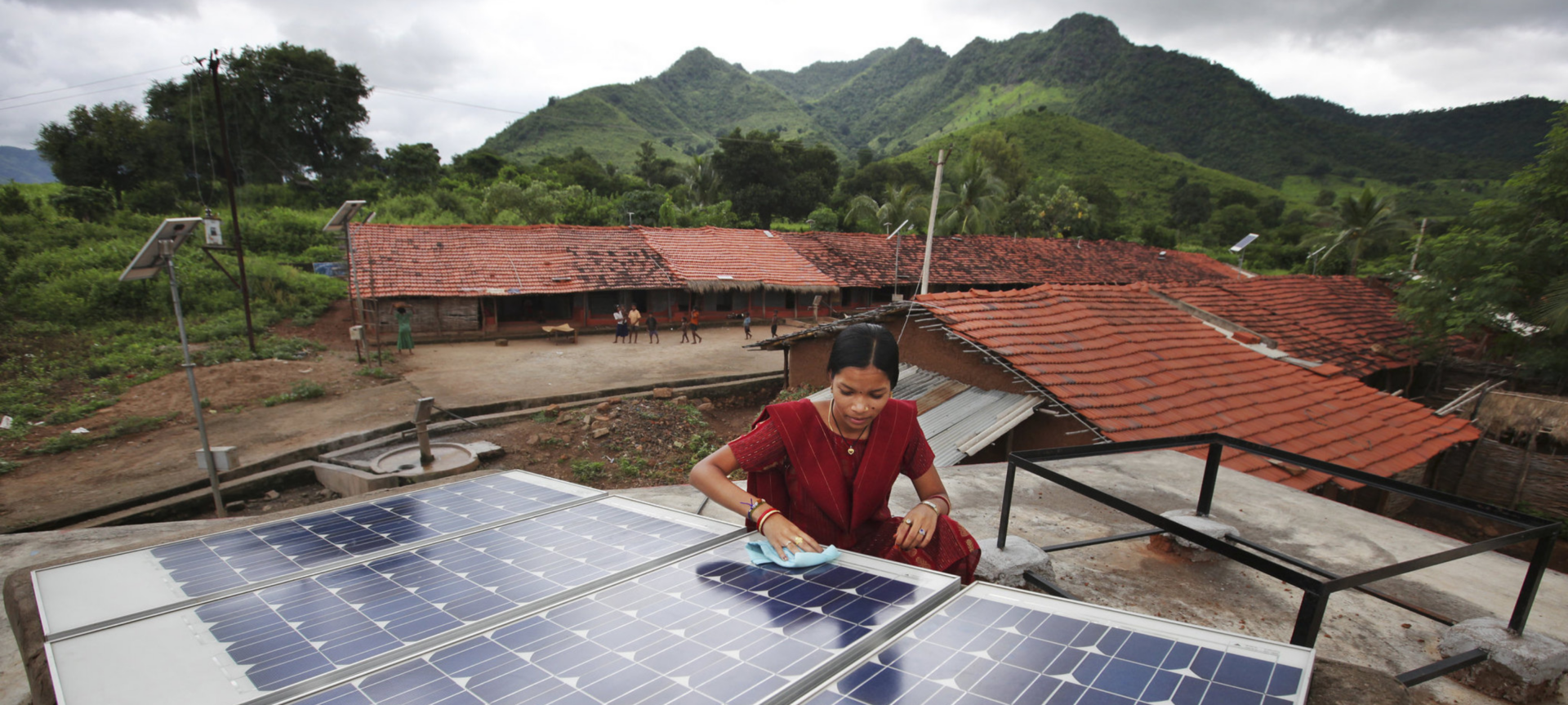Just Transition
In order to ensure a just transition away from coal and fossil fuels, which brings all regions and citizens on board and leaves no one behind, targeted policy measures and enabling conditions are needed.

In order to ensure a just transition away from coal and fossil fuels, which brings all regions and citizens on board and leaves no one behind, targeted policy measures and enabling conditions are needed.
The benefits of aiming towards climate neutrality by 2050 go beyond climate and environment impacts as new jobs are expected to replace employment in traditional fossil fuel sectors and drive economic development. However, different countries and regions have different starting points. In order to ensure a just transition, which brings all regions and citizens on board and leaves no one behind, targeted policy measures and enabling conditions are needed. Cities, regions, national governments, international organisations and international financial institutions need to synchronise their actions to achieve lasting results.
Just transition is a framework developed by the trade union movement to encompass a range of social interventions needed to secure workers’ rights and livelihoods when economies are shifting to sustainable production, primarily combating climate change and protecting biodiversity.
“Before 2030 we need Just Transition plans in place in every country with decent and quality jobs at the heart. Workers and their unions are needed at the table through a genuine social dialogue process that ensures that transformative action moves our economies and societies to stabilise our climate and keep global warming under 1.5°C.”
Sharan Burrow, General Secretary of the International Trade Union Confederation
In addition, major emerging economies have announced plans to accelerate a just transition from coal to clean power. This includes a South Africa Just Energy Transition Partnership worth $8.5 billion, as well as Indonesia and the Philippines agreeing to a ground-breaking new partnership with the Asian Development Bank to support the early retirement of existing coal plants. Further financing announcements are expected today at COP26.
Just Transition has been at the heart of PPCA’s theory of change since its creation in 2017. In 2020, the Honourable Jonathan Wilkinson, P.C., M.P, Minister of Environment and Climate Change, and the Right Honourable Kwasi Kwarteng, M.P., Minister of State for Business, Energy, and Clean Growth, United Kingdom, placed just transition at the forefront of clean energy transitions:
“We must deepen our engagement with coal-intensive economies—particularly in the global south—to develop partnerships and climate financing approaches that expand the range of clean energy options these countries can access and deploy. This goes hand in hand with mechanisms, resources, and support for a just transition in affected communities.”
We have under a decade left to stabilise the planet. It is critical to demand both ambitious NDCs and Just Transition commitments that get us to 40% emissions reduction by 2030 and to net zero by 2040.”
Through strategic partnerships and taskforces, the Alliance has mobilized an extensive and diverse network of practitioners to act on coal financing, grid modernization, and a just transition for affected communities.
In July 2019, the PPCA announced the creation of a Just Transition Taskforce. Thematic taskforces are proving useful to engage some of the big coal users, ensuring that not only is the PPCA a source of global leadership on climate but also a useful resource to access as countries embark on change.
The newly titled Just Transition Expert Group is made up of individuals and organisations from around the world who are experts in their field. Drawing on the expertise of the international trade union movement, academics and community groups to drive ambition and provide practical support not just to existing PPCA members but also reaching out to the big coal users.
The purpose of the Expert Group is threefold:
The PPCA continually features perspectives from trade unions and their social partners who are at the forefront of a just and inclusive transition –through publications, webinars and other events.
The PPCA Declaration was launched on 16 November 2017, at COP23 in Bonn. It sets out our collective commitment to accelerate the transition from coal to clean energy. We commit to achieve that phase-out in a sustainable and economically inclusive way, including appropriate support for workers and communities. We will also encourage our peers to join us in the Powering Past Coal Alliance to build a better world for our kids and grandkids.